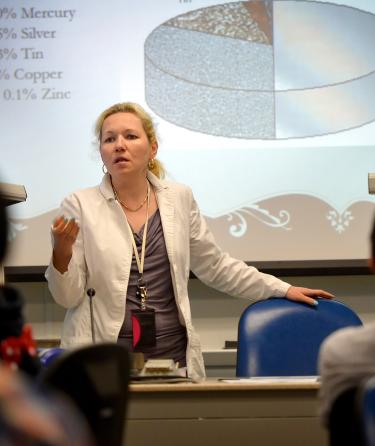Our Initiatives
Faculty Professional Development
We provide LACCD faculty with professional development opportunities in labor education that lead to them developing labor education resources. This is specifically done by identifying, recruiting, and assisting LACCD faculty to engage in the research, writing, and dissemination of labor-themed instructional materials that faculty across the District may incorporate and integrate into their curriculum. In addition to faculty professional development, this project also aims to create and strengthen collaboration among LACCD faculty, university-level scholars, and labor and community organization practitioners while adhering to DHLI's mission of promoting labor education across LACCD.
Voices and Images Events
We bring academic and labor leaders and experts in the field together with community college students, faculty, and staff through lectures, film series, workshops, speaker panels, debates, and other types of events. We sponsor events and provide resources for organizing events on campus such as:
- Acquiring and suggesting speakers for specific events and topics
- Collaborating with faculty and/or students to organize labor education events for their campus community.
- Partnerships with other organizations to bring workshops and training on specific topics and issues to your campus
- Educational tools - readings and instructional materials for use in the classroom for events
- Logistical support - assistance coordinating events, including consultation and checklist
Labor Role-Plays and Simulations
We run educational role-plays and simulations where students actively learn about collective bargaining, union elections, and strikes. We provide all materials and guest coaches. DHLI currently runs three simulations and is working to develop more. The three we currently have take place over two 1.5 hour class periods.
- Collective bargaining - students take on roles of union and management negotiators in a union contract negotiation.
- NLRB election - students role-play workers, management, and union organizers at a town hall meeting where they present and hear arguments about the pros and cons of joining a union and then vote on whether or not to be represented by a union.
- 1934 Longshore Strike - students play the role of the different labor and community interest groups in the 1934 Longshore Workers’ Strike in San Francisco. They must decide on whether or not to support the strike as a community.
Academic Advancement
We assist faculty to develop CSU and UC transferable classes on labor topics. Courses include History of Labor, Sociology of Labor, Labor Literature, Philosophy of Labor, and others. We also get faculty resources so they can contextualize existing courses (such as English 101) and/or teach units about working people, work issues and labor in their current courses.
